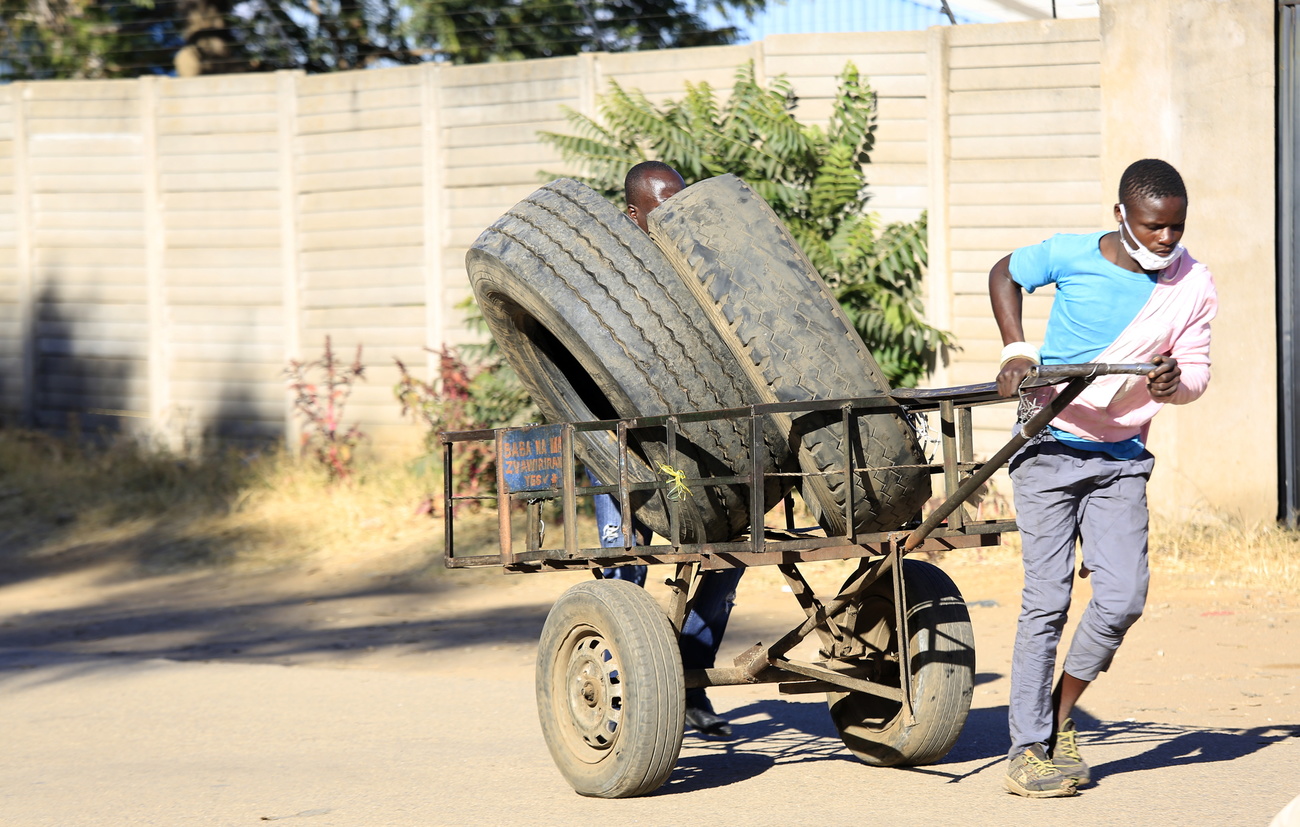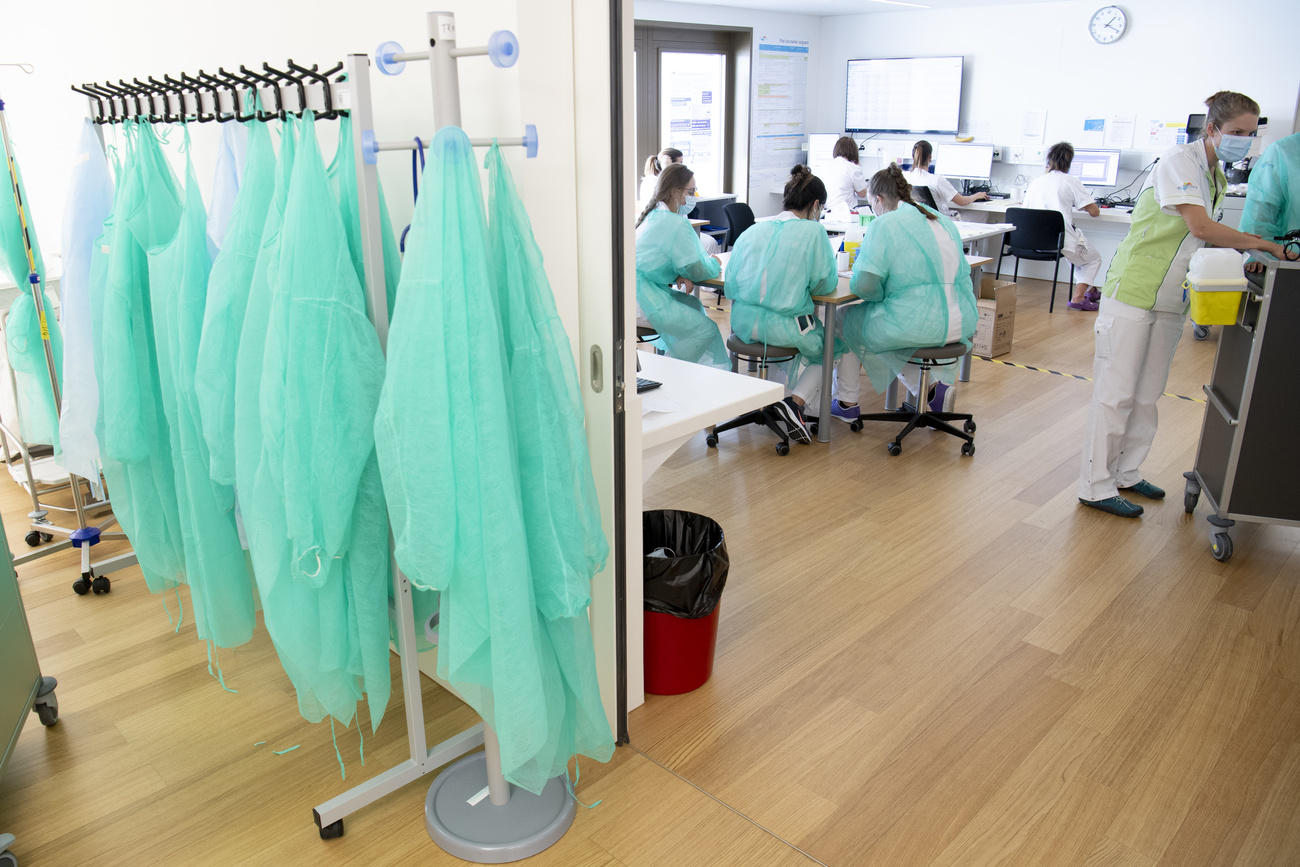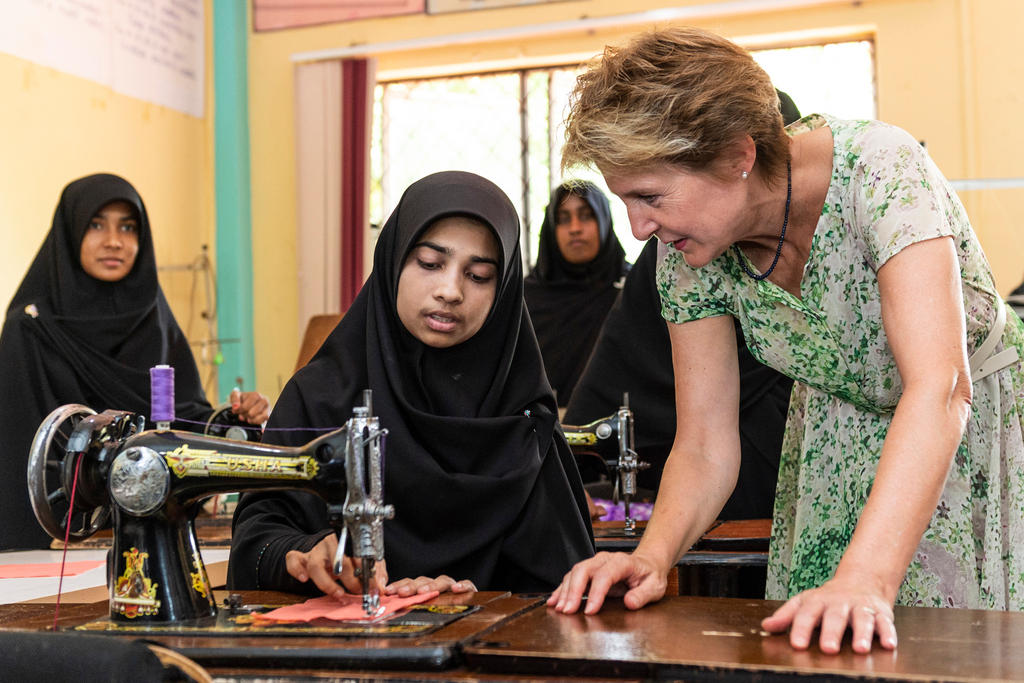Pandemic sets scene for parliamentary debate on development aid

While some say development aid is more important than ever to help offset the global impact of Covid-19, others call for a reallocation of resources to domestic problems. Amid such debates, Switzerland's parliament has given its initial approval to the government’s new aid strategy.
The first debate in the House of Representatives, which happened earlier this week, pitted the conservative right Swiss People’s Party against all the other major political parties and groups. Discussions are set to continue in both parliamentary chambers before the bill comes to a final vote later this year.
The strategy, which was announced by the government more than a year ago, earmarks a total of CHF11.3 billion ($11.9 billion) for bilateral and multilateral aid cooperation as well as humanitarian aid over the next four years.
This is some CHF140 million more than what was allocated for the current four-year period and accounts for 0.46% of Gross National Income (GNI) – the total income earned by Swiss residents, businesses, and earnings from foreign sources. But it falls short of promises made in the past to raise the aid quota to the 0.7% of GNI set by the United Nations.
When outlining its strategy more than a year ago, the government announced it wanted to place greater emphasis on Swiss interests, economic growth and the private sector, prompting criticism mainly from the political left and development aid groups.
The geographic focus will also be reduced to four regions instead of six: Africa, the Middle East, Asia and Eastern Europe will benefit, while Latin America and East Asia will be gradually phased out – by 2024, for the former.
Values
But strong opposition by the People’s Party and some reservations voiced by the left-wing Social Democrats and Greens – as well as the centrist Liberal Greens – did not succeed in derailing the reform during Monday’s debate in the House of RepresentativesExternal link.
Support by the centre-right Radicals and the centrist Christian Democrats ensured the bill cleared the first hurdle in parliament.
The debate over the planned amount of development aid was also marked by the economic impact of the coronavirus pandemic, both in Switzerland and worldwide.
“A stable situation is particularly important for Switzerland whose prosperity depends largely on foreign trade,” said Tiana Angelia Moser of the Liberal Green Party. Her group called for a higher quota of GNI to be spent on development aid.
“It is in our own interest, in the interest of Switzerland as a small country – which most likely benefits from globalisation – that we have peace, rule of law and less poverty on this planet,” added Social Democrat Fabian Molina.
Several People’s Party parliamentarians, including Roger Köppel, argued that renowned African experts have criticised the very concept of international development aid.
His party colleague, Franz Grüter, pointed out that the Covid-19 pandemic should lead to a shift in Swiss development aid and called for the rejection of a proposal to raise Swiss contributions.
“Many people in our own country fear for their existence and they have serious worries. They lost their jobs [during the pandemic] and face an uncertain future,” he said.
Global approach
Foreign Minister Ignazio Cassis warned that the Covid-19 pandemic threatened to undermine the achievements of development over the past few years and that the crisis could prompt a serious economic downturn and social problems for billions of people.
“The impact of international cooperation is particularly significant these days,” he said, adding that the government wanted to “spend less than CHF1 per day per Swiss resident” on aid.
Alliance SudExternal link, the alliance of Swiss non-governmental development organisations, made no secret of its disappointment about parliament’s unwillingness to boost aid payments to 0.7% of GNI.
“The House of Representatives missed an opportunity to send an urgently needed signal for more international solidarity;” a statement said.
It called on the Senate, the other parliamentary chamber, to amend the bill later this year and make Switzerland a model for other industrialised countries.
Fritz BruggerExternal link, from the Federal Institute of Technology in Zurich, says right-wing opposition is predictable, as development aid is often the first target of spending cuts in times of crisis.
“The current situation is an opportunity to seek closer international cooperation,” says the specialist on development economics.
Brugger also hopes that the crisis will further a general understanding that sustainable development is only possible through a global approach.

More
Swiss development aid re-allocated to combat virus

In compliance with the JTI standards
More: SWI swissinfo.ch certified by the Journalism Trust Initiative












You can find an overview of ongoing debates with our journalists here . Please join us!
If you want to start a conversation about a topic raised in this article or want to report factual errors, email us at english@swissinfo.ch.